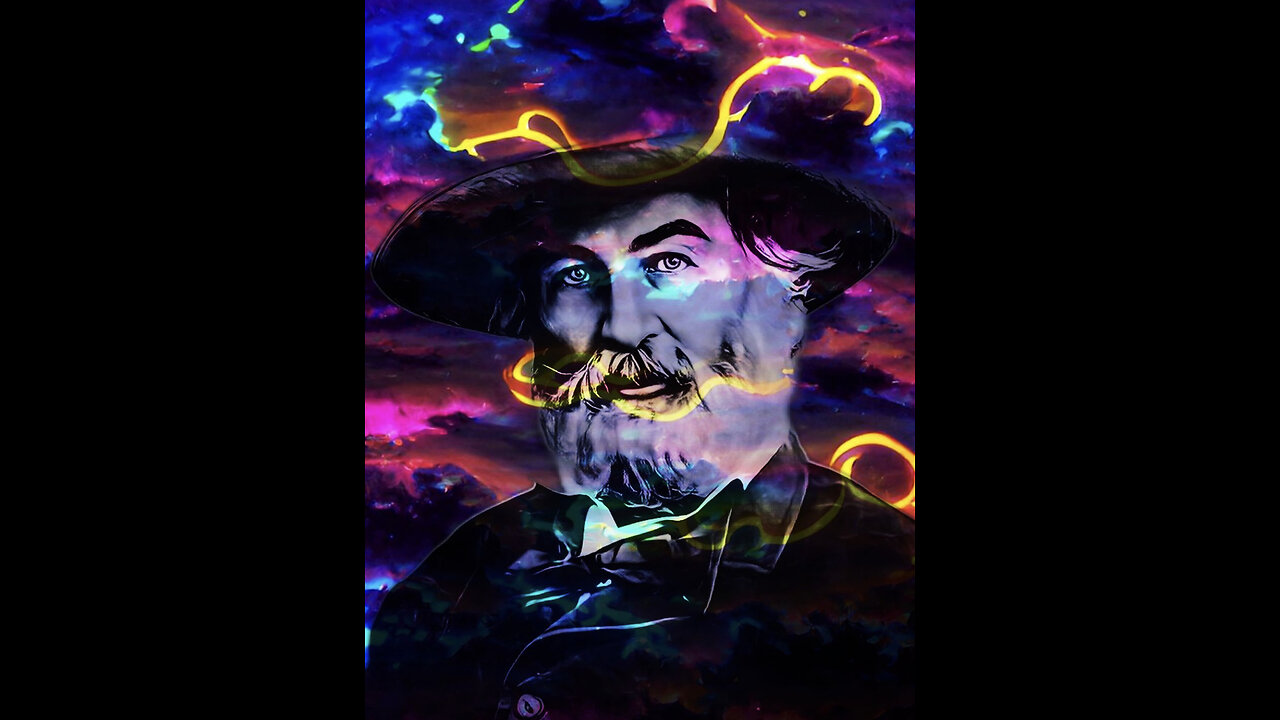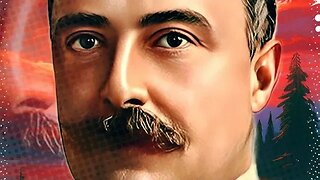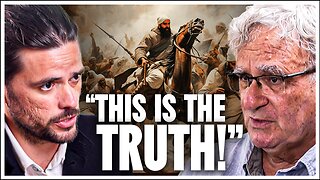Premium Only Content

Whitman: We Contain Multitudes
Join Walt Whitman in this Literati Short, for a journey down the ancestral Family Tree springing from the heart of humanity as we rediscover who & what we really are. Featuring vivid & compelling visuals.... designed to epitomize the journey within.
Walt Whitman was an American poet whose verse collection 'Leaves of Grass' is a landmark in the history of American literature.
Considered one of America's most influential poets, Walt Whitman aimed to transcend traditional epics and eschew normal aesthetic form to mirror the potential freedoms to be found in America. In 1855, he self-published the collection Leaves of Grass; the book is now a landmark in American literature, though at the time of its publication it was considered highly controversial. Whitman later worked as a volunteer nurse during the Civil War, writing the collection Drum Taps (1865) in connection to the experiences of war-torn soldiers. Having continued to produce new editions of Leaves of Grass along with original works, Whitman died on March 26, 1892, in Camden, New Jersey.
Background and Early Years
Called the "Bard of Democracy" and considered one of America's most influential poets, Walt Whitman was born on May 31, 1819, in West Hills, Long Island, New York. The second of Louisa Van Velsor's and Walter Whitman's eight surviving children, he grew up in a family of modest means. While earlier Whitmans had owned a large parcel of farmland, much of it had been sold off by the time he was born. As a result, Whitman's father struggled through a series of attempts to recoup some of that earlier wealth as a farmer, carpenter and real estate speculator.
Whitman's own love for America and its democracy can be at least partially attributed to his upbringing and his parents, who showed their own admiration for their country by naming Whitman's younger brothers after their favorite American heroes. The names included George Washington Whitman, Thomas Jefferson Whitman and Andrew Jackson Whitman. At the age of three, the young Whitman moved with his family to Brooklyn, where his father hoped to take advantage of the economic opportunities in New York City. But his bad investments prevented him from achieving the success he craved.
At 11, Whitman was taken out of school by his father to help out with household income. He started to work as an office boy for a Brooklyn-based attorney team and eventually found employment in the printing business.
His father's increasing dependence on alcohol and conspiracy-driven politics contrasted sharply with his son's preference for a more optimistic course more in line with his mother's disposition. "I stand for the sunny point of view," he'd eventually be quoted as saying.
Opinionated Journalist
When he was 17, Whitman turned to teaching, working as an educator for five years in various parts of Long Island. Whitman generally loathed the work, especially considering the rough circumstances he was forced to teach under, and by 1841, he set his sights on journalism. In 1838, he had started a weekly called the Long Islander that quickly folded (though the publication would eventually be reborn) and later returned to New York City, where he worked on fiction and continued his newspaper career. In 1846, he became editor of the Brooklyn Daily Eagle, a prominent newspaper, serving in that capacity for almost two years.
Whitman proved to be a volatile journalist, with a sharp pen and a set of opinions that didn't always align with his bosses or his readers. He backed what some considered radical positions on women's property rights, immigration and labor issues. He lambasted the infatuation he saw among his fellow New Yorkers with certain European ways and wasn't afraid to go after the editors of other newspapers. Not surprisingly, his job tenure was often short and had a tarnished reputation with several different newspapers.
In 1848, Whitman left New York for New Orleans, where he became editor of the Crescent. It was a relatively short stay for Whitman—just three months—but it was where he saw for the first time the wickedness of slavery.
Whitman returned to Brooklyn in the autumn of 1848 and started a new "free soil" newspaper called the Brooklyn Freeman, which eventually became a daily despite initial challenges. Over the ensuing years, as the nation's temperature over the slavery question continued to rise, Whitman's own anger over the issue elevated as well. He often worried about the impact of slavery on the future of the country and its democracy. It was during this time that he turned to a simple 3.5 by 5.5 inch notebook, writing down his observations and shaping what would eventually be viewed as trailblazing poetic works.
'Leaves of Grass'
In the spring of 1855, Whitman, finally finding the style and voice he'd been searching for, self-published a slim collection of 12 unnamed poems with a preface titled Leaves of Grass. Whitman could only afford to print 795 copies of the book.
-
 12:27
12:27
Literati
1 year agoWilliam Arthur Ward: Unleashed Thinking
128 -
 LIVE
LIVE
vivafrei
3 hours agoDid Trump Secure a Cease-Fire Between Israel and Iran? Update on the Canadian Ostrich Farm AND MORE!
8,884 watching -
 1:16:08
1:16:08
Awaken With JP
1 hour agoThey Know What The F*CK They're Doing - LIES Ep 97
12.8K6 -

The Quartering
4 hours agoYoutuber Takes Her Own Life Over Harassment, Why Women Are Single, Trans Creep Faces JAIL & More
92K16 -
 LIVE
LIVE
The HotSeat
1 hour agoTrump Keeps Winning — They Keep Whining While America Rises
696 watching -
 LIVE
LIVE
StoneMountain64
3 hours agoCasuals > Ranked ... I said it
405 watching -
 LIVE
LIVE
Barry Cunningham
3 hours agoPRESIDENT TRUMP IS ANGRY TODAY! CEASEFIRE IS BACK ON AND OTHER NEWS!
1,216 watching -
 1:39:42
1:39:42
Winston Marshall
2 hours agoHistorian Reveals Why Peace Has Been Impossible: Israel & Iran w/ Dr Benny Morris
21K7 -
 10:08
10:08
China Uncensored
1 hour agoThe REAL Reason Trump Bombed Iran
1261 -
![[Ep 695] Cuomo vs. a Muslim Communist | War Powers & the Constitution | Sam Anthony [your]NEWS](https://1a-1791.com/video/fww1/2c/s8/1/P/Z/s/W/PZsWy.0kob.1-small-Ep-695-Cuomo-vs.-a-Muslim-C.jpg) LIVE
LIVE
The Nunn Report - w/ Dan Nunn
1 hour ago[Ep 695] Cuomo vs. a Muslim Communist | War Powers & the Constitution | Sam Anthony [your]NEWS
116 watching